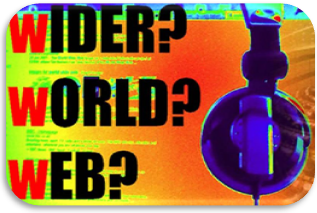 Published: 3 July 2012
Published: 3 July 2012
Region: Worldwide
How to create a web of diversity, what can be learned from the best journalism practices, how to enrich pluralism and participation using new media?

The Media Diversity Institute’s (MDI) work in the media and diversity field since 1998, as presented at the Pan-European Forum on Media Pluralism and New Media on the 27 June 2012, indicates that journalists’ awareness of diversity, knowledge of the EU fundamental rights framework, level of professionalism and ability to work across all media platforms are key factors in providing the best environment for enabling citizens to take part in the democratic process.
Bringing attention to the recently published study ‘Getting the facts right: reporting ethnicity and religion’, the MDI representative at the Pan-European Forum ‘wIDER wORLD wEB’, Dr Verica Rupar, stressed that ethnic and religious diversity has become one of the major challenges to the media in an increasingly diverse Europe.
The participants of this Pan-European Forum – members of the European Parliament, policy makers, representatives of traditional and new media, academics, civil society organisations (CSO), judges and leaders from the music, film and book industries – engaged in a dialogue on discrimination and intolerance in the EU, particularly the media’s role in relation to these issues.
“We can help journalists, media researchers and relevant CSOs better understand the way in which the professional orientation of journalists across Europe could influence their approach to the idea of inclusive society by bringing the examples of poor journalism practice that contribute to spreading stereotypes and prejudices,” said Dr Verica Rupar.
“But we can also do the opposite and bring the examples of the best journalism practice. Good journalism demonstrates how media can effectively contribute to fighting racism and xenophobia”, she added.
 A range of fascinating examples have been identified in the Study that was part of the ‘Ethical Journalism Initiative: A campaign to fight racism and xenophobia through the highest standards of journalism practice’ project run by the International Federation of Journalists, MDI and ARTICLE 19 and funded by the European Commission and Open Society Foundations.
A range of fascinating examples have been identified in the Study that was part of the ‘Ethical Journalism Initiative: A campaign to fight racism and xenophobia through the highest standards of journalism practice’ project run by the International Federation of Journalists, MDI and ARTICLE 19 and funded by the European Commission and Open Society Foundations.
They include new forms of community engagement, a revival of undercover reporting, new blogs, websites and newspaper supplements.
“‘The best reporting is not based anymore on a close relationship between journalists and experts, or only journalists and authoritative sources of information, but on a close cooperation between journalists and community at large. Good journalism, being mainstream, traditional journalism or alternative journalism, approaches the world wide web as a source of information, as an information gathering tool and as a medium itself, a media platform that produces journalism that matters for the benefit of the whole of society,” said Dr Rupar.
The Forum examined opportunities and risks for media pluralism resulting from new media. It provided a comprehensive update of recent developments in the field.
The key themes that emerged from the gathering were limiting concentration of media ownership, argued by actor Hugh Grant, one of the Hacked Off campaigners, and increasing media literacy. Overcoming the division between new and old media by focusing on the question of the quality of media was one of its main messages.
The event was organized by the University of Leuven, The Honourable Society of Grey’s Inn and the Centre for Media Freedom and realised with the support of Media Diversity Institute, Open Society Foundations, Google and many others.